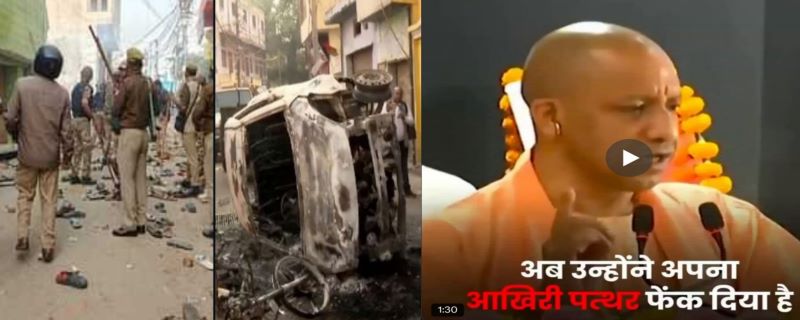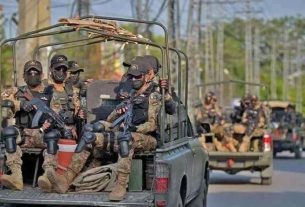In Uttar Pradesh’s Sambhal district, violent clashes erupted following a court-ordered survey of the Shahi Jama Masjid, leaving three dead and over a dozen injured, including 16 police officers. The conflict was triggered by allegations from Hindu plaintiffs claiming the 16th-century mosque was built atop a demolished Hindu temple.
The survey, initiated on November 20, followed a local court’s directive to an advocate commissioner to document the mosque’s premises through videography and photography. This action, stemming from a suit filed by Hindu plaintiffs, has further heightened communal sensitivities. The petition alleges that the mosque was constructed on orders from Mughal ruler Babar after partially demolishing a temple dedicated to Lord Vishnu’s avatar, Kalki.
Protests turned violent on November 24, as police used tear gas to disperse crowds while protesters threw stones. Authorities have since tightened security, deploying additional personnel to maintain order. Religious and political leaders have called for restraint, while mosque committees have urged locals to avoid further confrontations.
The incident has reignited debates over historical claims to religious sites, echoing the 1992 Babri Masjid demolition, which led to nationwide sectarian riots. Critics argue that such surveys, often linked to political motives, risk deepening societal divides. Bahujan Samaj Party leader Mayawati urged the Supreme Court to intervene, citing concerns about communal harmony.
The court-mandated survey is set to conclude with a report submission by November 29, amid widespread anxieties about the potential for renewed violence. Authorities are appealing for peace, emphasizing legal recourse over confrontations.





